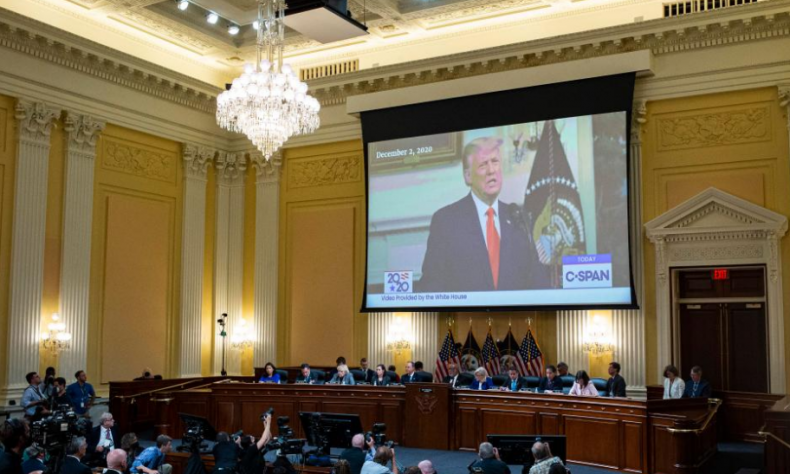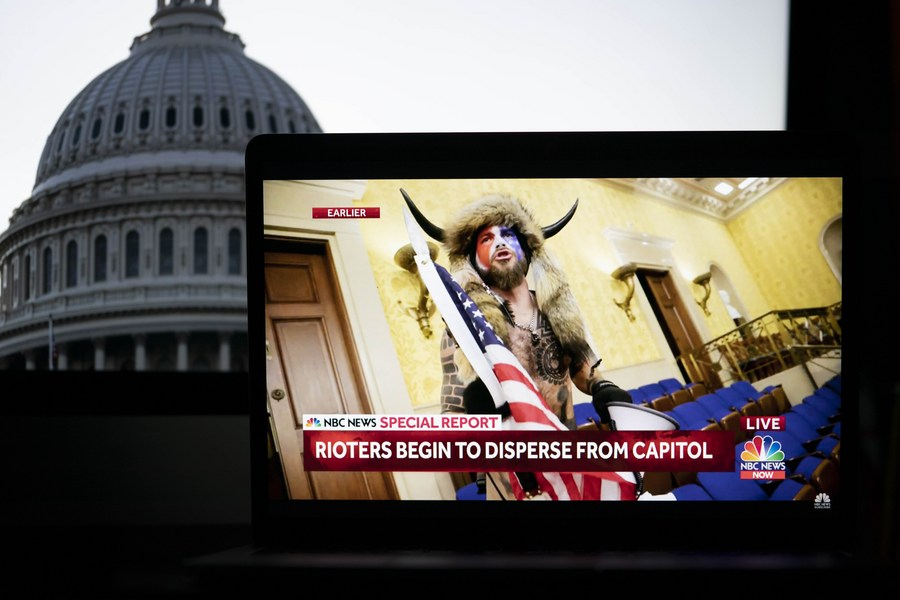Hard of Hearing?

The real purpose of this series of congressional hearings led by the Democratic Party is not to correct the systemic problems in the American democratic system. The hearings only seem to further intensify the partisan divide.
“The violence was no accident. It was [Donald] Trump’s last stand.” In a series of recent public hearings about the Capitol riots on January 6 last year, as lawmakers met to certify Joe Biden’s election victory, former U.S. President Trump and his inner circle were accused of conspiring to overturn the election results and inciting violence. Before the congressional hearing opened on June 9—the first of six hearings that month—Trump dismissed it as a “political hoax.”
Though the hearings did not contain any bombshell revelations, they did see a shift in tone from Trump allies, moving from total denial of responsibility to casting blame on others. Either way, the former president cannot escape responsibility for the Capitol chaos.
His actions greatly damaged the political foundation and international reputation of the U.S. Nevertheless, only a year and a half after the riots shocked the world, and perhaps even rewrote U.S. history, Trump remains active in the American political arena and, according to some news reports, is mulling when, exactly, he should announce a presidential run for 2024.
Many have compared this latest series of congressional hearings to the 1973 Watergate investigation. Americans were astonished to learn the White House not only eavesdropped on political opponents and monitored news reporters, but also tried to obstruct justice after the scandal was exposed.
Although Watergate rocked America to its core, many considered it a step in the right direction for American democracy to heal itself. Plus, most Republicans at the time made it very clear they would no longer endorse then President Richard Nixon. Today’s picture is looking very different.
A poll conducted by The Washington Post and the University of Maryland in late 2021 indicated only 27 percent of Republican supporters believed Trump should bear the majority of responsibility for the Capitol riots.

What’s more, a Monmouth University survey published by The Washington Post on July 7 showed more Republicans now regard the events of January 6, 2021, as a “legitimate protest” rather than a “riot.” The poll asked people in June 2021 and June this year whether each of those labels were appropriate descriptors for what happened. While 33 percent of Republicans said in June 2021 that the Capitol attack was an insurrection, that number is now just 13 percent. While 62 percent of Republicans called it a “riot” back then, that’s down to 45 percent.
The real purpose of this series of congressional hearings led by the Democratic Party is not to correct the systemic problems in the American democratic system. Instead, the goal is more realistic: to maintain a narrow advantage in the upcoming mid-term elections by attacking the Republicans. All in all, the hearings only seem to further intensify the partisan divide.
Since no one apparently wants to come out and admit the American system is seriously flawed, we might find more truth in numbers. The confidence the American people have in their democratic system is definitely declining.
On December 1, 2021, a poll of American young people aged 18 to 29 released by the Institute of Politics at Harvard Kennedy School indicated that a majority of the respondents believe their democracy is “in trouble” or “failing;” only 7 percent view the U.S. as a “healthy democracy.” A Yahoo/YouGov poll conducted from June 10 to 13, showed that 67 percent of Americans now believe things in their country are “off on the wrong track,” and most Democrats (55 percent) and Republicans (53 percent) now believe it is “likely” that America will “cease to be a democracy someday.”
It seems one of the few beliefs that unites Americans is pessimism about the future of their country.
 Facebook
Facebook
 Twitter
Twitter
 Linkedin
Linkedin
 Google +
Google +










